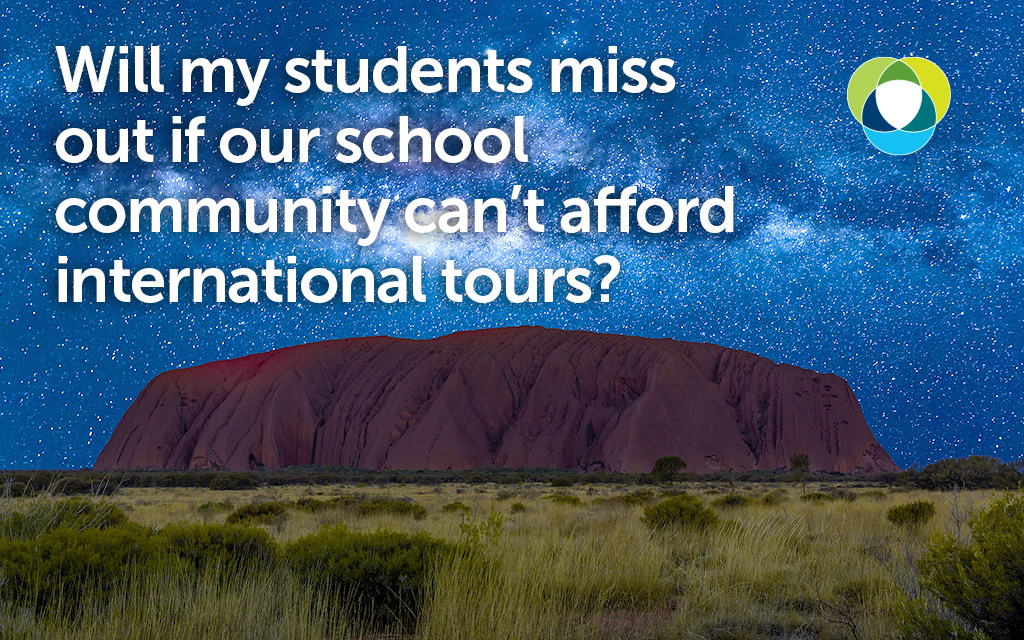With educational travel and touring back on the agenda for many schools, we’ve been getting lots of enquiries about shaping up itineraries that offer exceptional educational outcomes, without stretching the school’s budget.
Budget is, of course, a tricky issue and one that is as individual as each school. This week we’re tackling one of the most frequent questions we get when it relates to school touring budget.
Dear Latitude Group Travel,
We used to offer our junior school students several opportunities to travel, but stopped doing that during COVID when travel was restricted. Now that we can travel again, we’re keen to restart tours for the whole school, however we’ve lost some of the key teachers who were co-ordinating these programs. We might need to start from scratch and come up with some fresh ideas.
The other consideration is budget – not every family in the school can afford big international tours, particularly if they have more than one child coming through. How can we make sure we cater to most of our students, without compromising on the quality of the tour?
From, Perth Secondary School Teacher
We love this email because it touches on two of the most important issues when it comes to educational touring: making sure as many students as possible across your school have opportunities to get out and experience the world; and getting the best value from your program.
Let’s start with the first paragraph. Starting from scratch after the COVID travel pause is not a disadvantage for any school – in fact, we see it as an opportunity.
Prior to COVID, many schools have taken an ad hoc approach to touring – both in the planning phase and in terms of the school offering opportunities to a wider range of students and across subjects. Individual teachers may have designed and managed touring experiences themselves.
Our concern with this approach is that it can create the possibility of inconsistency of student experience across the school. It’s one of the many key reasons why we advocate so strongly for school principals and the executive team to use this opportunity to revolutionise and reset their school touring program, with the support of a specialised school touring partner.
We’re currently working with several leading schools to conduct a Strategic Planning & Review and Risk Management Audit of their previous/existing touring programs. This has been particularly useful in schools where there has been a high turnover of teaching staff in the last little while; and/or there is uncertainty around the strategic and educational merits of the touring program.
Your school is unique – your tours should be too
This process is so important because there is no ‘one size fits all’ approach to school touring. The program that is right for your school will be aligned to your strategy, mapped to your curriculum and will cover domestic and international opportunities across all subjects and combination of subjects, including general capabilities and cross-curriculum priorities, should you wish.
Importantly, it will also ensure sound environmental and ethical choices for the planet, as well as creating meaningful learning outcomes for students. Safety and risk management should also be carefully considered in both the review and the tour planning.
What about budget and cost considerations?
Now, moving on to the second part of the question, the right partner will also be aware of your school’s socio-economic situation for budgeting purposes. This is information that should be considered and prioritised during the review process, and your forward program should be planned carefully with opportunities that align to your budget.
For many schools, this means a focus on domestic tours rather than international. Some teachers worry that prioritising domestic tours will mean students are missing out, but rest assured this is NOT the case.
Many of the opportunities we have here in Australia are equal to anything you’ll find overseas, particularly in the innovation and entrepreneurship space. We’ve designed itineraries where students participate in branding and marketing workshops; start-up hubs and even visit the headquarters of digital giants – all without leaving the East Coast of Australia.
Another great option we provide locally is Language Immersion and Cultural Tours. You might think that you need to head overseas to get true exposure to the target language and culture, but we’re happy to tell you that’s no longer the case. This is a whole separate article in itself, and we’ll be talking about it more in the next couple of weeks.
In fact, if you do want to travel internationally, one of our key recommendations is to leave those big trips until the later years of school so parents have longer to save up for the opportunity. The focus of the earlier years can then be on domestic travel and service-learning tours.
Ultimately, it will all depend on your school’s unique community and requirements – and that’s why it’s so important to go through a review process (and the sooner, the better).
How can we help
Latitude Group Travel is Australia’s leading provider of custom designed, curriculum linked, educational, experiential learning tours for late primary and secondary school students. We’re committed to helping teachers and their students bring their classroom learnings to life by creating memorable and unique experiences. Our itineraries allow your group to take in iconic sights combined with as many classes, workshops, themed guided tours or subject related activities as you wish.
We also specialise in combining multiple subjects in a single itinerary, so parents will know they’re getting greater value for their money.
To find out more:
Tour Brochures – Request a copy of any of our brochures by filling out the form – we’ll send it to you via email
Get in touch to find out how to claim the discount for your school.


